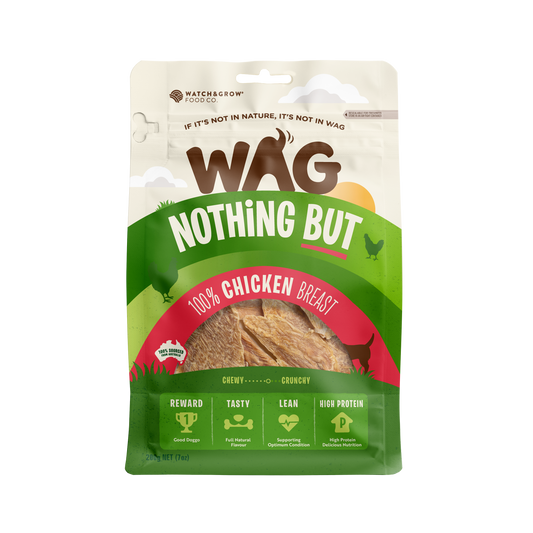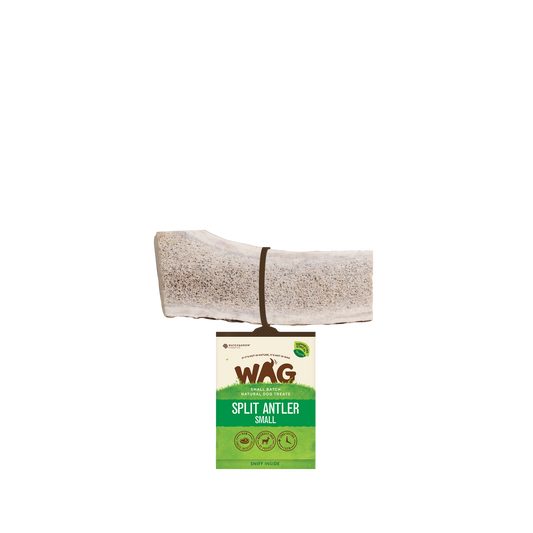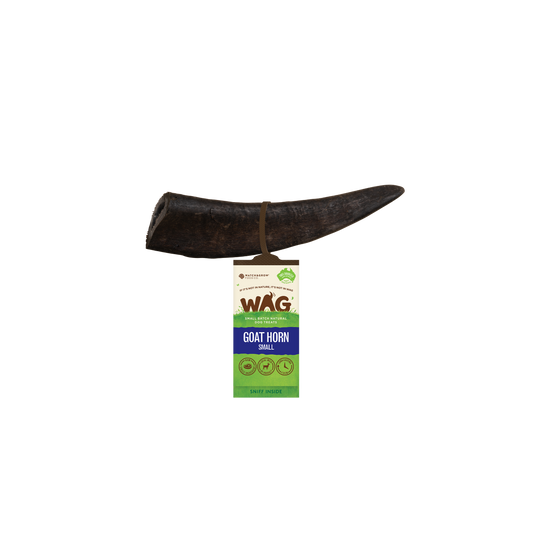Sustainability is always on WAG’s collective minds – inspiring and informing how we source, sell and package our treats. It’s a united responsibility to maintain and protect our planet and natural resources, which means everybody must do their part to keep our ecosystem flourishing.
We don’t need a handful of people doing it perfectly—we need millions of people doing it imperfectly.
–Anne Marie Bonneau
At its core, the concept of sustainability is simple: adopting balanced procedures and processes that safeguard our environment and to preserve our world for future generations to enjoy. It means being conscious of your environmental impact, your carbon footprint, and understanding how your individual actions can impact the Earth.
Unsustainable practices can range from overproduction and overhunting to mass destruction of rainforests and wildlife habitats. Concern has grown in recent years that our current model of resource use and consumption will result in the eventual destruction of our planet. There are overwhelming consequences to unsustainable practices.
It means knowing where dog ownership fits into the part of the puzzle.
The environmental impact of dog food
Today, the Australian pet food industry is estimated to be a whopping $94 billion-dollar trade. According to the RSPCA, there are over 29 million pets in Australia alone. Of those, an estimated 4.8 million are dogs. That’s 20 dogs for every 100 people! And as dogs are largely carnivores and consumers of meat, they do put a huge strain on the demand for animal production and processing (which is known to be a leading contributor to greenhouse gas emissions).
To speak plainly, it’s estimated that the carbon footprint of one medium-sized dog is equivalent to a large SUV.
We’re not saying, stop feeding your dog meat, or saying get rid of your dog! We are saying that we all need to be responsible consumers.
How to be a sustainable dog owner
So, our best friend has the same carbon paw-print of a sports car. What next? Well, it’s definitely not simple, but it’s a start:
- Check the ingredients
- Don’t overfeed
- Stay informed and stay educated
- Don’t have a kid – have a furbaby instead!
- Support companies that support sustainable efforts
Check the ingredients
If feeding high-quality pet food is important to you, you’ve probably heard the word ‘by-product’. By-products are the leftovers of agriculture that would be otherwise wasted, such as offal, organs, and other bits humans don’t eat but your doggo loves.
At WAG, we let nothing go to waste by using and sourcing animal byproducts. And by using byproducts – a widely recognised and important contributor to sustainability – we’re able to continue making sure nothing goes to waste in the ecosystem we’re using for meat treats. So, fulfil your dog’s need to eat meat without contributing to over-production and excessive slaughter. Waste not, want not.
Feed your dog less
It’s simple: eating less food equals less environmental impact. 41% of dogs in Australia are classified as overweight or obese. Overfeeding is an enormous contributor to this gloomy statistic, and improving your dog’s weight could benefit not only their health but the environment too.
If you can’t figure out exactly what your doggo’s waistline should look like, check out this handy guide. If in doubt, visit your veterinarian and ask for their advice on how to get that dog-bod slimmed down.
4. Stay informed and stay educated
Support companies dedicated to sustainability
The choices we make and the companies we choose to fund with our hard-earned cash can make a huge impact in the fight for sustainability. Businesses are all about supply and demand – if more consumers demand eco-friendly and sustainable practices, more businesses will supply it.
Similarly, each company should be able to tell you clearly and with confidence about their sustainability practices. If you give your dog fish treats, you should ensure the manufacturers of your fishy snacks are supporting sustainable fisheries (the process of fishing that respects the marine environment with little impact on wild fish populations).
By ensuring that your dog’s favourite food company is dedicated to reducing waste, reusing resources and recycling as much as possible.
Some meat sources are significantly more sustainable than others, so choose your flavour wisely. Kangaroo meat is considered the most humane and sustainable way of producing red meat, emitting less greenhouse gasses than sheep and cattle and ultimately putting less strain on the atmosphere.
Why should sustainability be important to you?
With our current global use of resources, fossil fuels, and environmentally impactful processes, the future looks very bleak. Not only do we want to enjoy the spectacular ecosphere we’ve been given, we want our children and grandchildren (and doggos and dog-grand-children) to enjoy it too. We need to commit to change.
Modern pet owners have a lot of love for their dogs and they want to know that they’re making well-informed decisions about their pet’s health. WAG is here to give them the very best, pure and simple, without compromising the environment.
Dogs and the outdoors go hand in hand–there’s no way we can have one without the other. There’s no better time than now to commit to being sustainable.
Shop the Recipe
WAG Team
Up Next
What is operant conditioning and should I use it for training my dog?




